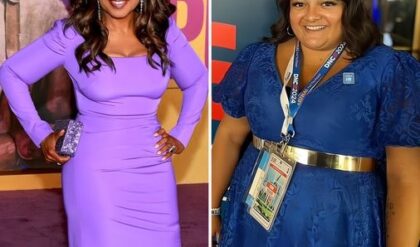Breaking: Elon Musk Backs Harrison Butker, “I Stand with Harrison and Freedom of Speech”

In a turn of events that intertwines the worlds of sports, culture, and business, Elon Musk has publicly declared his support for Harrison Butker, the Kansas City Chiefs kicker whose recent speech has sparked widespread debate. Musk, known for his assertive presence in the tech industry and frequent forays into public discourse, extended his support via Twitter, affirming his stance on freedom of speech and aligning himself with Butker’s right to express personal views.
Harrison Butker’s contentious speech at Benedictine College in Kansas drew sharp lines among supporters and critics. He addressed a variety of topics, including abortion, LGBT Pride, and what he termed as “degenerate cultural values,” sparking a fiery debate on social media and among public figures. His remarks, which also criticized the current administration and voiced support for traditional gender roles, led nearly 160,000 people to sign a petition demanding his dismissal from the NFL.
Elon Musk’s tweet, “I stand with Harrison and freedom of speech,” not only catapulted the discussion into a wider arena but also underscored the Tesla CEO’s consistent advocacy for unrestricted speech. Musk, who has himself been at the center of various controversies related to his statements and decisions, positioned his support for Butker as a matter of principle, emphasizing the importance of upholding the First Amendment.
The NFL had previously distanced itself from Butker’s remarks, clarifying that his opinions were expressed in a personal capacity and do not reflect the league’s views. This stance is part of a broader attempt by the league to navigate the complex waters of personal expression within a corporate framework, aiming to maintain neutrality in an increasingly polarized social climate.
The response to Musk’s endorsement of Butker has been as polarized as the reaction to the original speech. Supporters of Butker and Musk applaud the move as a brave stand for personal liberties, celebrating their willingness to speak out against what they see as prevailing biases in the media and cultural sectors. Critics, however, argue that Musk’s support could embolden divisive rhetoric under the guise of free speech, potentially normalizing what they consider harmful ideologies.
The intersection of Musk’s statement with Butker’s speech highlights a critical dialogue about the boundaries of free speech, particularly concerning public figures in influential positions. It raises questions about the role of employers, like the NFL, in regulating or responding to the off-field behavior of their players, especially when such behavior sparks public outrage or support.
One significant aspect of this controversy involves the balance between an individual’s right to free speech and an employer’s right to uphold certain standards and values. This balance is particularly delicate in high-profile industries such as professional sports and tech, where personal beliefs can impact public perceptions and brand integrity.
As the debate unfolds, it is likely to provoke further discussions about freedom of speech, the responsibilities of public figures, and the role of social media in shaping public discourse. For Elon Musk, this is another chapter in his ongoing engagement with societal and cultural issues, reflecting his broader ambitions to influence not just technological innovation but also global conversation.
Elon Musk’s support for Harrison Butker underscores the complex interplay of free expression, corporate responsibility, and cultural influence in today’s society. Whether one agrees or disagrees with Musk and Butker, this development serves as a pivotal case study in the dynamics of modern public life, where the worlds of sports, business, and social issues continually intersect and ignite. As society grapples with these issues, the conversations sparked by figures like Musk and Butker will undoubtedly play a shaping role in our collective approach to freedom of speech and its limits.





